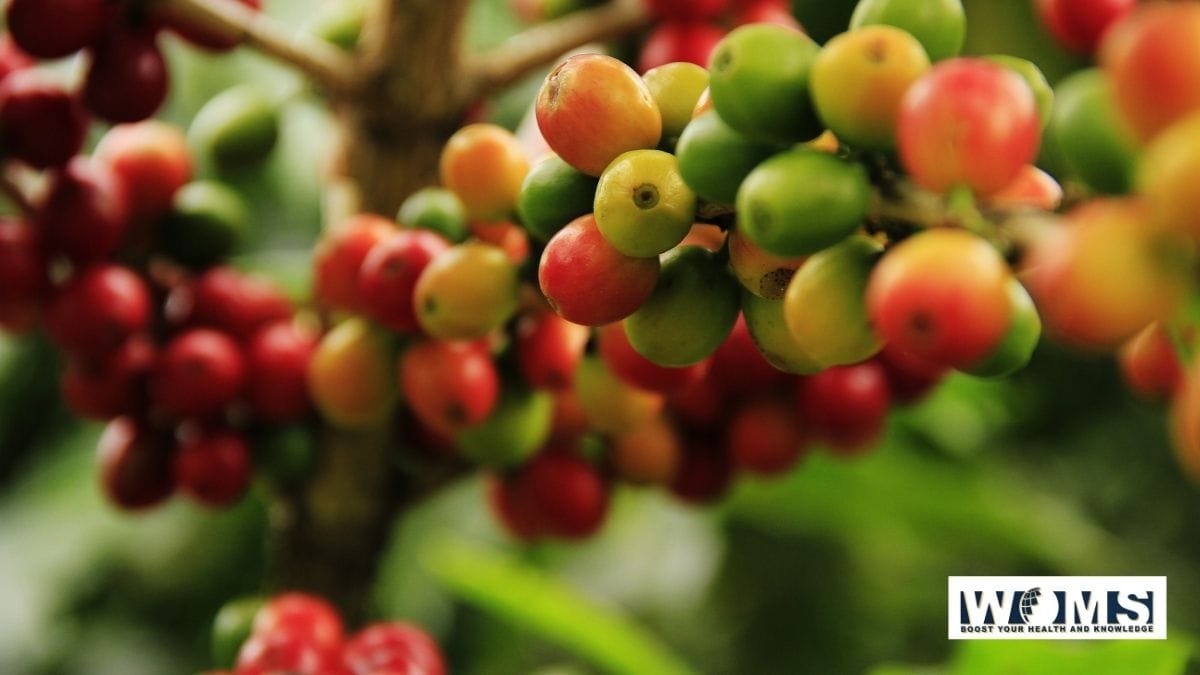Coffee Fruit: Nature’s Super Fruit

Coffee fruit is usually called coffee berries or coffee cherries. Inside coffee fruits, coffee seeds (coffee beans) are formed. They have long been known for their nutritional and health-promoting properties, notably their antioxidant content.
The cherry, on the other hand, is perishable and, until recently, was prone to bacterial infection and molds that produce poisonous secondary metabolites known as mycotoxins.
As a result, the fruit, aside from its seed (coffee beans), has long been regarded as waste material, unfit for human consumption, and has been thrown or used as fertilizer. It’s a hot new super-food that get features supplements, smoothies, and herbal teas, and it has just re-emerged in the realm of health and wellness.
The fruit is usually small and green, but as it ripens, it turns a rich red or purple color. The coffee bean is officially in a class as a seed because it is present inside the fruit. The coffee beans are removed from the fruit during the manufacturing process, while the fruit is usually discarded.
Antioxidant-Rich Fruit: Coffee Fruit
The antioxidants and polyphenols in coffee berries are quite healthy. Antioxidants aid in the neutralization of dangerous molecules known as free radicals, which can cause cell damage and chronic disease over time. Antioxidant substances such as rutin and chlorogenic, protocatechuic, and gallic acids are abundant in the fruit.
Taking 800 mg of coffee fruit extract per day for four weeks enhanced antioxidant status in 20 athletes, according to a small study. Older test-tube and animal research have also demonstrated that the extract can boost immune function and limit cancer cell proliferation, presumably because of its high antioxidant content.
It’s worth noting that more research is a must to see how the antioxidants in coffee berries affect human health. Also, keep in mind that the way a coffee berry undergoes processing can have a big impact on its antioxidant levels. For example, one test-tube investigation found that extracts had antioxidant activity up to 25 times higher than powders.
Beneficial for Brain Health
It may help safeguard brain function and slow the effects of aging, according to promising studies. For example, one study found that eating coffee fruit extract for 28 days reduced reaction time in 71 older persons with modest mental deterioration.
Another short study found that ingesting 100 mg of coffee fruit concentrate for 2 hours boosted levels of brain-derived neurotrophic factor (BDNF), a protein crucial for the survival and growth of neuronal cells in the brain.
Furthermore, persons with Alzheimer’s disease have reduced levels of BDNF, according to an analysis of 15 research. As a result, coffee fruit concentrate may be useful in the therapy or management of this illness. However, further research is a must to fully comprehend the coffee fruit’s potential benefits for brain health.
Promote fat loss
Although there is little research on the subject, some studies show that coffee fruit and its components may help people lose weight. In one test-tube investigation, coffee fruit extract, for example, stimulated fat cell disintegration while inhibiting the formation of new fat cells.
Chlorogenic acid, found in the fruit, has gone an examination for its capacity to aid weight loss and fat burning. Chlorogenic acid inhibited weight and fat growth in mice fed a high-fat diet in a 6-week study.
Some research facts:
Similarly, a 12-week trial in 150 overweight persons found that consuming lungo coffee fortified with chlorogenic acid reduced both body and belly fat much more than a control group.
Keep in mind, however, that the majority of current research is only to test-tube and animal studies evaluating the effects of extremely concentrated extracts.
In the end, additional research is a must to see how coffee fruit consumption affects weight and fat loss in adults. While there isn’t much research on the long-term safety of coffee fruit, it’s usually harmless if ingestion is in moderation. When given to rats in one animal trial, the fruit was well tolerated and did not cause any negative effects, even at quite large doses.
It’s important to remember that it also contains caffeine. Caffeine content varies depending on the product, dosage, and form, however, most products include 5–20 mg of caffeine per serving. This is much less caffeine than normal coffee, which has roughly 96 mg per cup (240 mL). However, if you’re caffeine-sensitive or trying to cut back on your intake, this is still a viable option.
Uses of Coffee Fruit:
We can get it at most health food stores and pharmacies. It comes in a variety of forms, such as liquid extracts, tablets, and capsules. The fruit is also frequently present in supplements that claim to promote brain health and energy levels, usually in combination with a blend of other fruit extracts.
Doses of 100–800 mg per day are safe and well-tolerated in studies. However, there is no official dosage recommendation for these supplements at this time. It can also present in drinks like juice mixes and is in use to make coffee cherry tea (also known as cascara), a herbal tea made from the dried skins of the coffee fruit.

It’s also in use topically to relieve inflammation and enhance skin texture, and it’s present in several skincare products. More research is in need, however, to determine how coffee fruit affects skin health. Before consuming coffee fruit, see your healthcare professional if you have any underlying health concerns or are taking any drugs.
Also read about: miyazaki mango.
Takeaway:
It has great benefits and you can have lots of advantages by taking the fruit. I hope this article has helped you on whether taking the fruit is okay or not. Do share it as it can help others too.
FAQs
1. What is coffee fruit ?
It is a small, round stone fruit produce by the coffee plant and is also a coffee cherry or coffee berry. It grows in bunches on the coffee plant and is about the size of a grape. When it’s young, it’s green, but as it ripens, it turns a deep crimson, reddish-purple, or yellowish-red color.
2.What is coffee fruit extract?
The coffee fruit extract is a nootropic (brain-boosting) supplement made from natural ingredients. The beautiful red fruit that wraps around coffee beans is in use for making coffee fruit extract. It’s high in antioxidants and chemicals that help the brain function better. Brain-derived neurotrophic factor (BDNF) seems to increase by 143 percent when coffee fruit extract is in use by people.
3.What does coffee fruit taste like?
Coffee cherries have a pleasant, somewhat sweet flavor. The flavor is reminiscent of various red fruits, such as raspberries, red mulberries, currants, cranberries, cherries, and raisins. Because I’ve only tried them dried, they have a slight “dried fruit” flavor (e.g., as raisins are to grapes)
4.Does coffee fruit have caffeine?
Because of the low caffeine level, 1 gram of the multistep unique whole coffee fruit extract contains more than 10-fold the total chlorogenic acid content of a standard 200 mL cup of brewed roasted coffee (about 70 mg) and just 1.5 percent of the daily caffeine intake suggested




